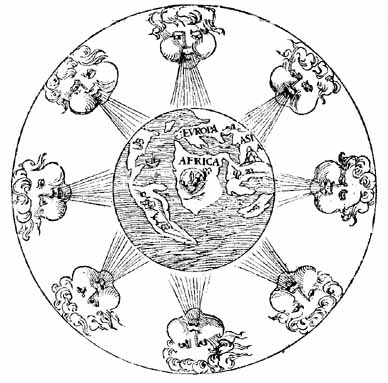CFP: "Chinese medicine: intangible heritage for the whole world", special issue for China Perspectives - Deadline: May 31, 2011
Chinese medicine: intangible heritage for the whole world
Theme:
The political authorities in the People’s Republic of China consider Chinese Medicine – usually referred to as “Traditional Chinese medicine” (TCM) – as a tool of primary importance in expanding their “soft power”. Wang Zhenyi, the noted haematologist at Shanghai Ruijin Hospital, said recently that this medical tradition was "a national treasure still untapped" even though the Chinese government is investing "heavily in this sector by founding universities of traditional medicine in all major Chinese cities." The 86-year-old Professor Wang says: "we will very soon see the growth of a truly global market for traditional Chinese medicine." One of his brightest students, Professor Chen Zhu, vice-president of the Chinese Academy of Sciences, member of two other Academies of Sciences (USA and France), a Francophile honoured with the Legion of Honour, and Chinese Minister of Health since June 2007, has often stated his deep commitment to promoting the development of Chinese medicine throughout the world.
In devoting a special issue to several topics related to Chinese medicine, the team of China Perspectives (in English) / Perspectives Chinoises (in French) aims to analyse this subject in its historical, anthropological and political dimensions. Preserving this “intangible heritage” (fei wuzhi wenhua) has become a major issue not only for the Chinese state but also for international organizations like UNESCO. The system of TCM is a special entity, both because of the abundance of written sources and the extent of practice during centuries of Chinese history and now spread all over the world. Its therapeutic resources concern – because of the contemporary presence of TCM in all parts of the world – a huge section of humanity. Both its potential contribution to public health and its cultural richness make TCM an important heritage not only for China but the world as a whole.
We intend to treat this issue around several lines of thought: the list may be increased or adjusted according the proposals made by our different contributors :
*
The semantic field included in the term "Chinese medicine"
*
The development of a discipline relying on a long literature and history
*
Crisis and mutations, particularly in the twentieth century
*
Contemporary debates
o
About its mode of dissemination
o
Confrontation with its traditional roots
o
Reform of its practice and teaching
*
The political manipulation it may be subject to
*
Conflict between some popular practices and the systematic integration imposed by the university system
*
Its dissemination and reception
o
In East Asia (Korea, etc.)
o
In Africa
o
Or in the Western world, with the problem, sometimes thorny, of its introduction into academic institutions and in public health systems ill-prepared for its integration
*
…
Framework and technical informations:
*
Each contribution would have a length of about 8,000 words.
*
It may be written in English, French or Chinese.
*
Before publication, each paper would be submitted to two external peers for evaluation.
*
The publication will be in two languages, English and French.
*
The editors of the review will arrange for translations.
*
The French version of articles will be published in Perspectives Chinoises; the English ones in China Perspectives.
*
The consent to write or not a paper for this special issue is fixed at: end of FEBRUARY 2011
*
The first draft of the papers should be returned at: MAY 31, 2011.
*
The pear’s feedback would be sent to the author hopefully before: JUNE 30, 2011.
*
The final version of the paper should be ready for: AUGUST 31, 2011
(and AUGUST 15, 2011 for papers in French or in Chinese).
*
The publication in English is supposed to be first around: SEPTEMBER 30, 2011
*
…and afterwards in French around: OKTOBER 31, 2011.
Short introduction to the scientific review China Perspectives / Perspectives Chinoises :
China Perspectives / Perspectives Chinoises is published by the French Centre for Research on Contemporary China (CEFC), one of 27 research centres abroad (UMIFRE) supported by the Ministry of Foreign Affairs and the CNRS. The mission of the CEFC is to study the political changes, economic, social and cultural aspects of contemporary China (PRC, Taiwan, Hong Kong, Macau).
Founded in 1992, China Perspectives/Perspectives Chinoises is an academic quarterly entirely devoted to contemporary China. It is put together by a team of specialists based permanently on the ground and is overseen by an international editorial board. Papers published therein are subject to anonymous review. Contributions may be offered in French, English or Chinese and are published in two languages: since 1995, the magazine has a French version (Perspectives Chinoises) and an English one (China Perspectives). Since the launch of its new formula in 2007, each issue of the journal focuses in depth on a particular aspect of contemporary China. In 2009, China Perspectives addressed issues of AIDS in China, the Tibet situation, the historical impact of 4 June 1989 and the reconfiguration of religion in the PRC. The issues of 2010 have dealt with independent Chinese cinema, Gao Xingjian, Taiwan and the Migrants. More details are available online on the content of these issues: http://www.cefc.com.hk/perspectives.php?cat=2.
Thus far, more than 650 authors have contributed to China Perspectives/Perspectives chinoises. An extensive network of specialists in contemporary China has been created both in France and in the world. This dynamic has recently been prized by AERES (Agency for the Evaluation of Research and Higher Education): China Perspectives/Perspectives chinoises has been referenced in both political science and sociology/demography sections in its ranking of January 2010.

